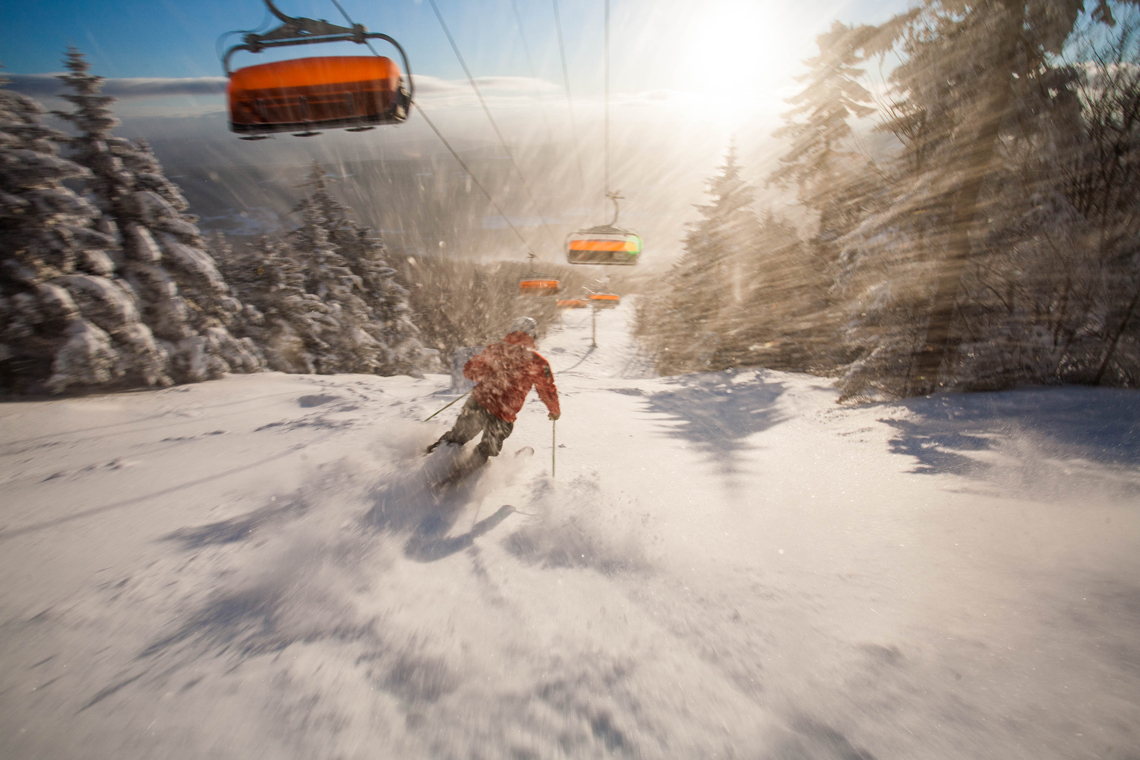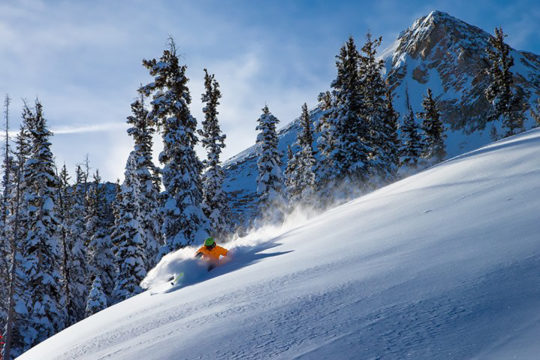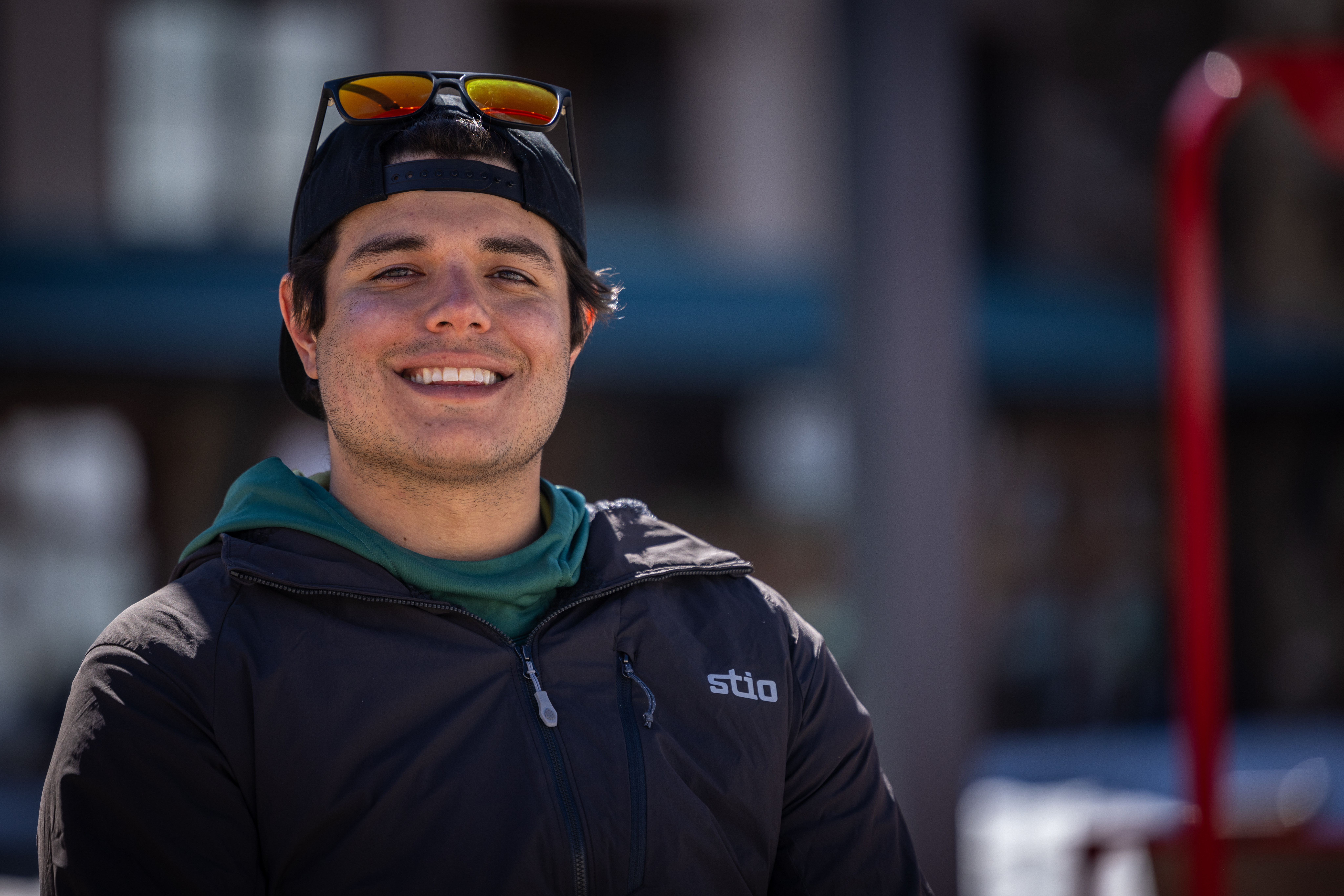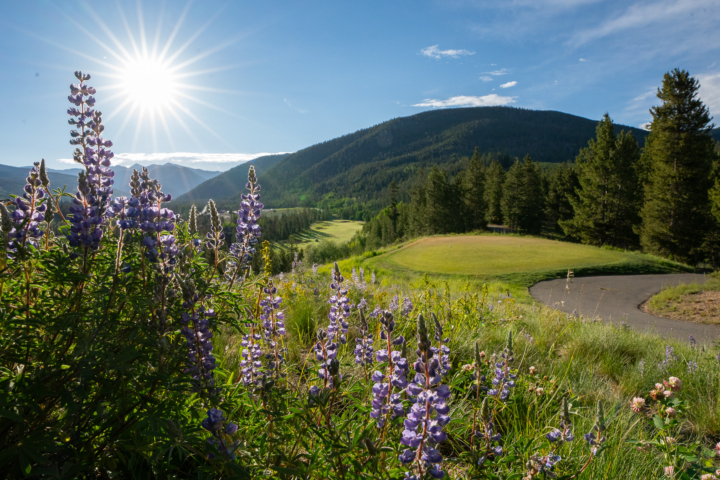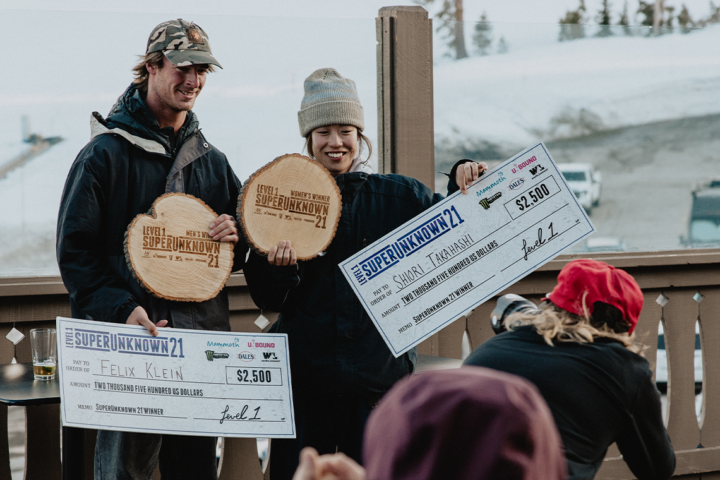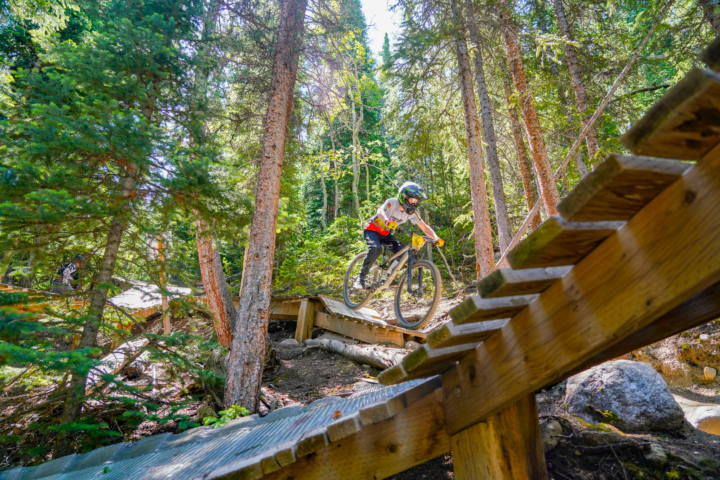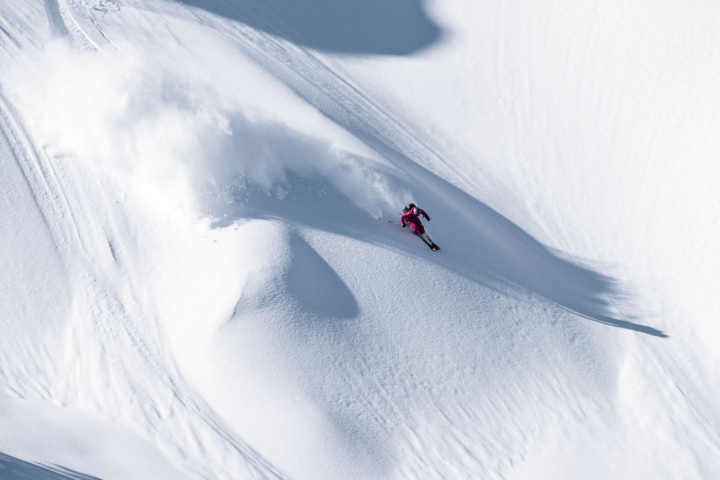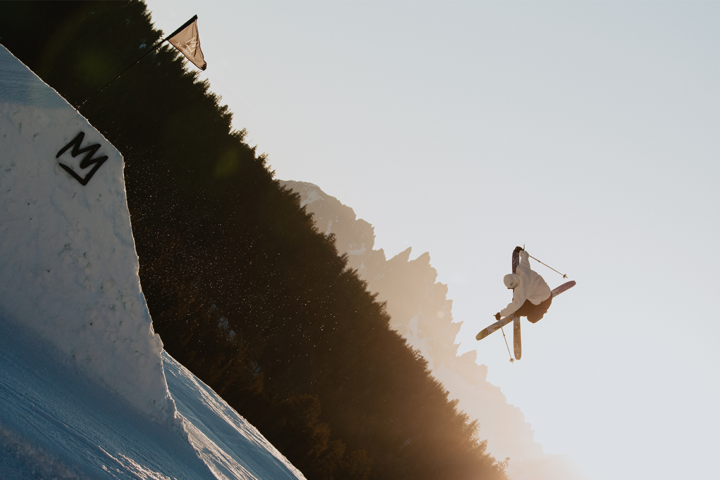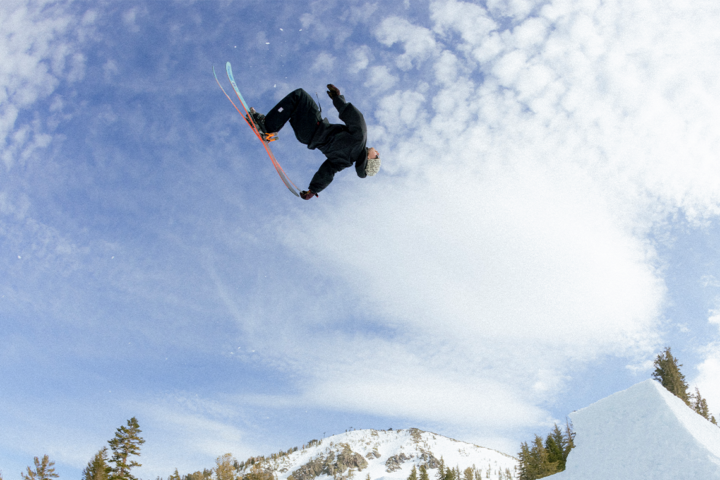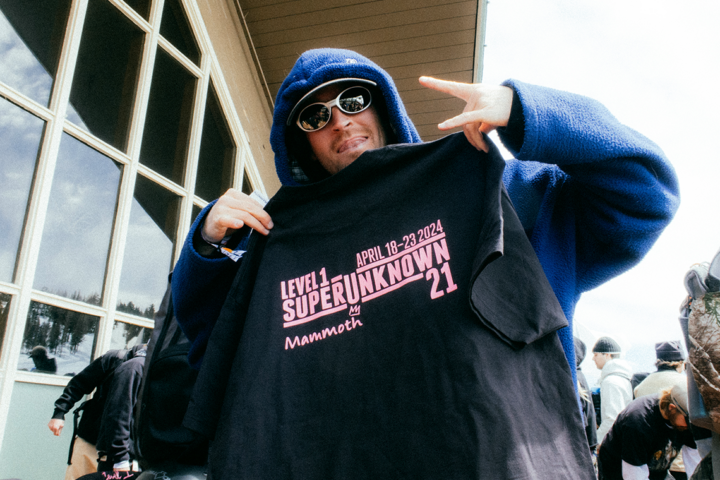Featured Image: Greg Petrics/Okemo Mountain
In Ludlow, Vermont, the news spread between locals like wildfire: Vail Resorts would be purchasing its hometown ski area, Okemo Mountain, along with three others, namely, Mount Sunapee, New Hampshire, Crested Butte Mountain Resort, Colorado and Stevens Pass, Washington, in another blockbuster deal worth over $150 million in transactions.
As expected, there was backlash; but it seemed cursory and repetitive—like, haven’t we heard these complaints before? Cynics took to the internet to make their voices heard: “The Evil Empire strikes again,” said one; “Goliath gobbles up another David,” commented another. But amidst the noise, there is a silver-lining—one that often goes unheard as the ramblings of pessimists stream over the airwaves and throughout the ski community. For mid-size ski areas, Vail resorts ensures a future.
“First of all, I think that a lot of people forget that Vail Resorts, although it’s a big company, is truly a ‘ski company.’ They started as a ski company and they’ve only ever done skiing,” said Erica Mueller, vice president of Crested Butte Mountain Resort.
Erica is part of the Mueller family, who privately owned and operated the aforementioned resorts over the past 35 years under the name Triple Peaks, LLC. In 1982, her parents, Tim and Diane, bought Okemo, just north of Chester, Vermont, where they lived and raised Erica and her brother, Ethan; in 1998, the Muellers acquired the first lease ever given by the State of New Hampshire to privately operate Mount Sunapee; additionally, in 2004, the family purchased Crested Butte Mountain Resort, which Erica and Ethan oversaw directly.
Pouring countless dollars, time, effort and a contagious passion for skiing into these resorts, the Muellers weren’t actively looking to sell in 2018, and the initial call from Vail wasn’t expected. Yet, once the conversation started, the acquisition by Vail seemed to be a decision that would ultimately protect the future of their relatively small resort holdings.
“We talked about it as a family. Not just looking in the short-term or what the weather was like this past season; it was really looking 10, 20, 30 years down the road and [asking] what can [Vail] do for our resorts, employees and communities,” said Mueller.
As Vail has absorbed resort after resort in blockbuster deals, including Stowe and Whistler Blackcomb, it’s now almost expected that it and other ski resort conglomerates, notably the Alterra Mountain Company, will continue making headlines in this fashion; the biggest concern for core skiers being that these monopolies will whitewash the ski experience. Erica Mueller believes this isn’t the case.
“From every conversation I’ve had, [Vail] intends to keep the soul of each ski area as it is,” said Mueller. “They don’t want to come in and homogenize everything; they realize the value that Okemo, Sunapee and Crested Butte bring to their portfolio of resorts. Keeping that is important to them.”
Inherently, Vail will establish a new corporate structure and operations practices as it begins its administrative oversight of ski areas like Okemo; it will also bring its seemingly bottomless pockets and the ability to fund improvement projects that were unattainable with the Muellers in charge. Depending on the perspective, these changes can merit excitement or concern.
Erica Mueller has faith in the new management. “The human resources side of things that [Vail] can bring, as far as more efficient operations, marketing strategies or leadership development for our team, it’s pretty phenomenal,” she said. “Employees will be more polished, more efficient and there will be more opportunities in general, at all three ski areas. They’ll [also] be able to bring financial resources; that’s one of the clear examples. The announcement [that Vail will spend] $35 million in improvements over the next two years… that’s incredible and each of those areas can benefit from it.”
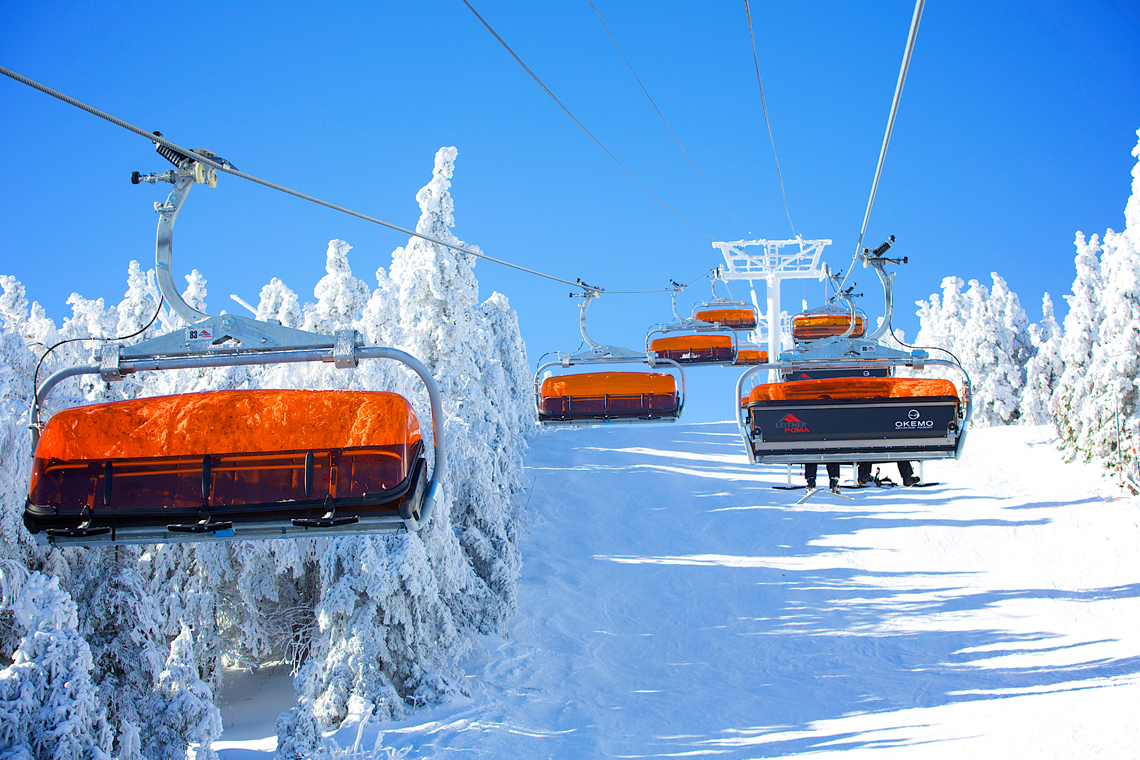
For Shon Racicot, a lifetime resident of Ludlow and owner of The Boot Pro ski shop, there was some initial concern about the acquisition; yet he discounted it immediately. “Our locals who are employed at the mountain—will they be replaced by the upper management at Vail, and will decisions start to be made off-site?” he questioned rhetorically, only to continue, “I’m not sure that’s something so much to worry about, though, because Vail is a professional business and they realize what it takes to run a ski resort—and that’s the people.”
Eliza Greene runs the Homestyle Hostel and Main + Mountain Bar & Hotel, situated across the street from one another in downtown Ludlow, and her reaction to this news was entirely positive. “As a business owner, I’m super excited. It’s going to bring a lot of new tourism dollars [to Ludlow.] It will really open up avenues and ways to get new people here, who wouldn’t necessarily come to Okemo. It just seems like we’re changing with the times, keeping Okemo current. That’s exciting to me.”
For all of the negativity floating around, the finger-pointing and name-calling in the direction of Vail Resorts and its 31 mountain destinations, it seems most of it is unwarranted.
In the eyes of passionate skiers and businesspeople like the Muellers, the presence of Vail not only brings opportunity to towns like Ludlow, Crested Butte and Newbury, NH (the location of Sunapee), it ensures a future for these ski areas. For local business owners, Epic Pass holders are seen with wide-eyes as prospective clientele and potential returning customers. And, for all of us—the skiers who enjoy carving a path down a snowy hill—not much will change, and if things do, it’ll most likely be for the better.
